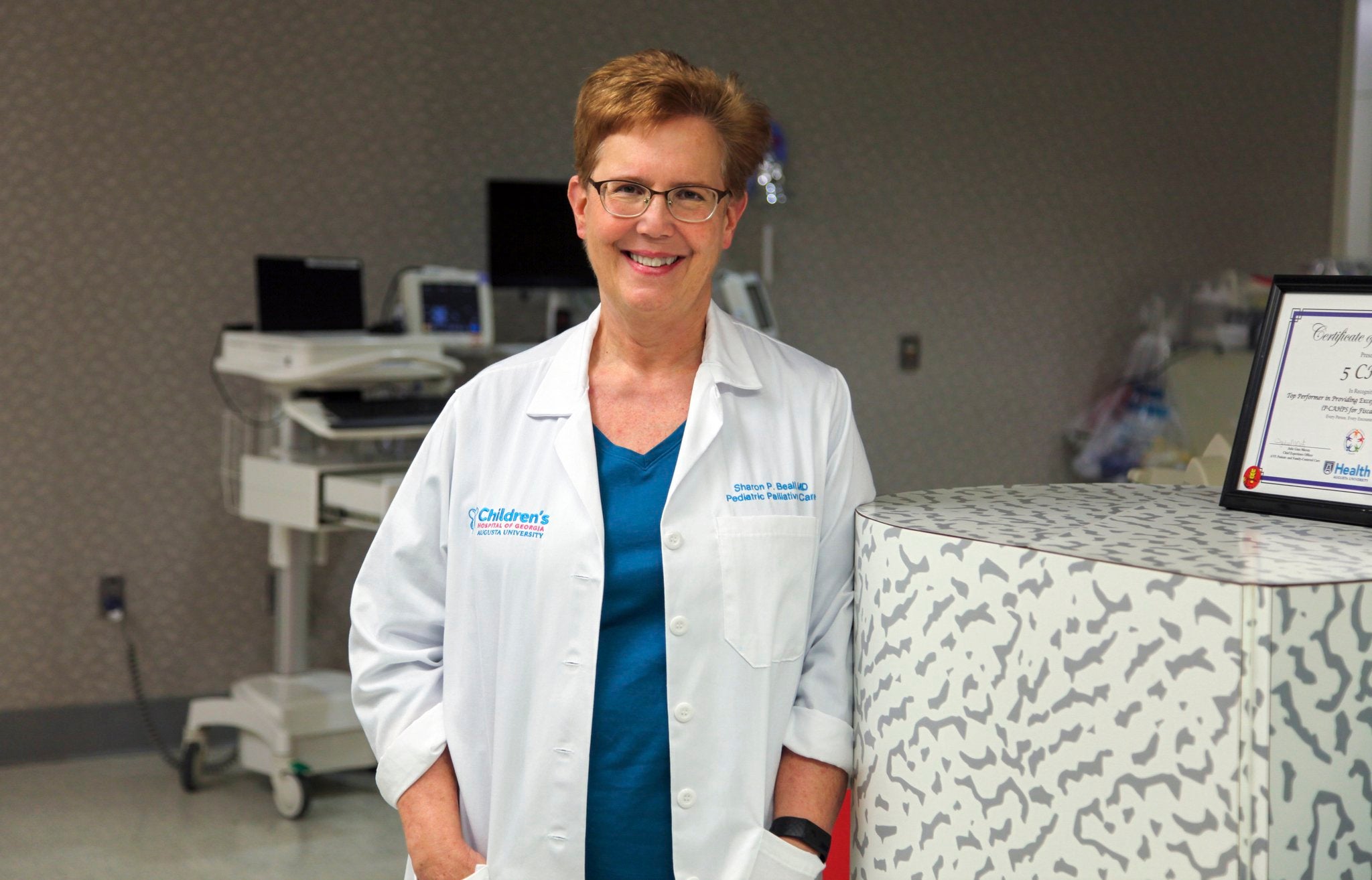Dr. Sharon Beall has been named medical director for the Pediatric Palliative Care and Hospice Program at the Children’s Hospital of Georgia.
Beall, a 1990 graduate of the Medical College of Georgia, is a pediatrician who specializes in the care of children who are living with life-limiting conditions.
Before coming back to the medical school and Augusta University Health, she was lead hospice physician at Hands of Hope, the pediatric program of AgapeCare Hospice, which provides in-home pediatric palliative care and hospice services across South Carolina.
Pediatric palliative care is a branch of medicine that focuses on relieving the symptoms and the often accompanying stress of illness with the goal of improving the quality of life for both the child and their whole family, according to information provided by Jennifer Scott of the AU Division of Communication and Marketing.
[adrotate banner=”22″]
Pediatric palliative care teams are typically comprised of specially-trained doctors, nurses, social workers, chaplains and child life specialists that add an “extra layer of support” for patients and their caregivers. A primary focus of a palliative care team is honoring caregivers’ wishes for the child’s care across care settings — inpatient, outpatient and at home — and coordination between their primary and specialty care teams.
Adults typically go into palliative care when they have a life expectancy of roughly two years, but pediatric patience who are born with multiple congenital health issues may need palliative care support from birth, Beall says.
“Some children and their families never have the opportunity to experience ‘health,’ making the early addition of pediatric palliative care services critical,” she added.
Pediatric hospice care, which is what she calls the “end of the spectrum of palliative care,” is typically delivered when a child’s life expectancy is less than six months.
[adrotate banner=”19″]
However, “predicting life expectancy in the pediatric population is much more difficult with less well-defined clinical trajectories than those available for adult disease processes, such as dementia, heart failure and chronic lung disease,” Beall explains. “Many pediatric patients are receiving curative and life-prolonging treatments, which result in clinical improvements that allow them to ‘graduate’ from hospice. That is a huge source of joy for our team.”
Pediatric patients on hospice can receive all types of medical interventions based on the goals of care. Possibilities include palliative chemotherapy, blood transfusions, even organ transplants, along with in-home support provided by a hospice team, Beall says. In 2010, President Barack Obama signed the Concurrent Care Provision, part of the Affordable Care Act, into law. It requires state Medicaid programs to pay for both curative and hospice services for children under age 21 who qualify.
Both services are ultimately about supporting families through what may be the most difficult days of their lives.
“It is the most rewarding medicine I’ve ever done,” Beall says. “Part of it comes from the kids themselves, because they just don’t let things get them down. And part of it is that you’re making sure families understand there are choices and that the palliative care team wants to honor the goals parents have for their child’s care.”
[adrotate banner=”43″]










